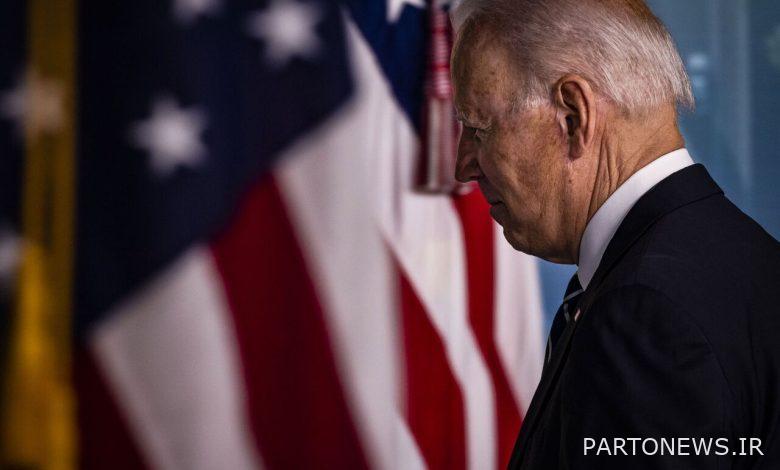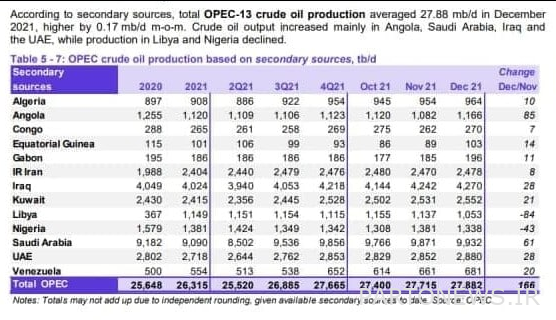The dream that turned to ashes – IRNA

The United States has acknowledged the Trump administration’s misguided strategy of undermining Iran’s nuclear commitments, such as cutting cooperation with the International Atomic Energy Agency, accelerating Iran’s nuclear program, increasing enrichment to 60 percent, and turning east.
From May 7, 2016, when, contrary to the warnings of the members of Borjam and international criticism, Trump unilaterally withdrew from Borjam and imposed sanctions in the form of a “maximum pressure” campaign; None of the US goals have been achieved, either in terms of changing Iran’s behavior in the region or in signing a secondary agreement.
«The United States has acknowledged the Trump administration’s misguided strategy of reducing Iran’s nuclear commitments, such as cutting cooperation with the International Atomic Energy Agency, speeding up Iran’s nuclear program, increasing enrichment to 60 percent, and turning east.“After three years of the Trump administration’s campaign of maximum pressure against Iran, on February 26, on behalf of his administration, the US State Department spokesman confessed that” maximum pressure has failed and sanctions have not reached their goal. “
“The previous government left us with very bad choices,” he said. The campaign of maximum pressure was a disastrous defeat, and every promise he made was fulfilled. We are currently looking for a reciprocal return to adherence, but we are also considering all options. Direct interaction with Iran on Borjam or other issues will be more fruitful.
US Secretary of State Anthony Blinken also criticized the previous administration’s decision to pull out of the nuclear deal at a news conference in early January, saying: “Now because of one of the worst decisions I have made in politics. The United States has been a foreigner in the last decade, we are in the current situation, and that decision to withdraw from the Iran nuclear deal was the Borjam, an agreement that limited Iran’s nuclear program.
Shooting to the foot, it does not matter left or right!
At the same time, Mikhail Ulyanov, Russia’s permanent representative to international institutions based in Vienna, tweeted: Indeed! The decision to leave Burjam was like shooting one of America’s legs, whether it was his left foot or his right foot.
On August 4, US Special Representative for Iran Robert Mali made the same confession and acknowledged the failure of sanctions.
In an interview with the BBC, he reiterated the Biden administration’s claim that the Trump administration’s maximum pressure campaign against Iran had failed miserably, and that it was hurting US interests.
Mali added: “We were in a situation from the previous government that Biden decided we should end; That is, Trump’s maximum pressure campaign against Iran, which failed miserably and harmed US interests.
But Democrats were not alone in acknowledging the US failure to advance the strategy of maximum pressure on Tehran, and Republican leaders are acknowledging this failure in the envelope. Trump’s secretary of state, Pompeo himself, who led the project after the end of the Trump administration, acknowledged the US’s incompetence with Iran, saying “about forcing Tehran to fall short and enter into an agreement that would actually prevent it from acquiring a nuclear weapon.” “Everything we hoped to achieve did not materialize.”
On January 14, Biden’s Democratic government spokesman, Jen Saki, blamed the Trump administration for the current problems with Borjam over the withdrawal from the international agreement, as talks between Iran and the P5 + 1 reached.
A White House spokesman said the United States was completely isolated from the international community because of the Trump administration’s departure.
Leave Burjam and reinstate sanctions
When Trump formally left the UN Security Council in May 1997, he reinstated all previous sanctions in several stages. He first targeted the dollar, gold and precious metals trades in mid-June 1997, as well as the automotive industry and the sale of aircraft to Iran. The second round of US sanctions (November 14 of that year) targeted the oil industry, banking, shipping, insurance services and energy sectors.
Of course, Trump considered several different time periods in order to exempt the major buyers of Iranian oil and extended it. The former US president eventually lifted all exemptions in order to reduce Iran’s oil exports to zero in order to put maximum pressure on Tehran.
Trump’s inability to implement his policy led to the removal of many key figures in the State Department, including Brian Hook, head of the Iran Action Group; He was appointed to tighten the sanctions and reduce Iran’s oil exports to zero.
In fact, the Trump administration’s embargo on Iranian oil exports came to the attention of the White House more than any other embargo. Although Iran’s oil exports never stopped, high sales fell due to oil and banking restrictions.
On the other side of the coin and reducing Iran’s obligations
May 7, 1998, but on the other side of the coin. Iran’s strategic hour of patient patience in the face of the inaction and inaction of Borjam’s partners in the face of a blatant violation of the nuclear deal has ended, and Iran formally part of its Borjam commitments on the anniversary of the US unilateral withdrawal from Borjam – endorsed by the International Atomic Energy Agency over three years. The past was done accurately and completely _ reduced.
The five-step reduction in commitments was aimed at balancing commitments, increasing enrichment to 60 percent, producing 20 percent pure uranium metal, reducing cooperation with the IAEA, and similar decisions to pressure the West to lift sanctions.
Economic and human terrorism
The scale of US economic and humanitarian terrorism went so far as to oppose Iran’s $ 5 billion loan from the International Monetary Fund to counter the corona to provide medicine, medical equipment and hospital equipment.
In sum, Trump’s United States carried out economic assassinations against Iran through sanctions. Although the US president ostensibly made an exception for the export of humanitarian and medical items to Iran, due to the banking network embargo, Iran was in fact sanctioned in these cases as well. However, due to the increasing number of Corona victims in Iran and the world, the need for Iran to have access to medicine was felt more than ever.
In fact, the US action went beyond sanctions, it committed crimes against humanity. They not only sanctioned Iran’s sensitive industries, but also the lives, food and needs of the people; Even some days, due to pressures, some basic goods became scarce.
The Trump administration pulled out of the UN Security Council to force Iran to return to the negotiating table and re-enacted a long list of economic sanctions lifted under the agreement. The White House continued to pursue a policy of imposing further restrictions on Iran’s economy in an effort to bring Tehran into new negotiations, imposing nearly 1,500 new sanctions on Iran.
Realists at the time predicted that Iran was far more likely to resist US-dictated demands than to surrender, and the Iranians resisted: Iran’s low-enriched uranium reserves increased exponentially as scientists installed more advanced centrifuges. ; Tehran resumed uranium enrichment to 20 percent and went up to 60 percent. In short, what the proponents of the maximum pressure strategy wanted to achieve became a more distant goal.
Despite the resistance, Iran was then faced with the challenges of sanctions, including the freezing of its tens of billions of dollars in foreign bank accounts; It was difficult to sell crude oil to traditional customers, and Iran’s crude oil exports fell by about 75% between 2017 and 2020. Concerns about cutting access to the US financial system also prompted European companies to suspend their projects in Iran.
Bypassing sanctions
In late December, the US-based Wall Street Journal reported that Iran had bypassed US sanctions in recent months and exported more oil to China and other countries. The newspaper wrote: “Increasing oil exports will help Iran’s crisis-ridden economy and weaken the Trump administration’s maximum pressure campaign against Tehran.”
On December 30, China released official statistics on oil imports from Iran, and an Iranian official said US oil and banking sanctions had been lifted. According to statistics released by China Customs, this large shipment of oil included more than 260,000 tons (about 1.8 million barrels) of Iranian crude oil, which was recently delivered to Chinese ports.
The Wall Street Journal reported in a report on February 26: “In addition to Richard Neveu, known as the architect of the Iranian sanctions, as a key member of the US delegation to the Vienna talks, two others left the negotiating team due to disagreements.”

Sanctions with a gangster mentality
“US sanctions have been used for this purpose, just as US officials have acknowledged in declassified documents and sometimes even openly stated in the media,” Bradley Blankship, an international expert on sanctions, told IRNA. They are destabilizing governments and are designed to provoke popular opposition to their governments.
“US sanctions are imposed with a gangster mentality; The White House uses sanctions to incite people against their governments. This behavior is something like mafia movies in which you see gangsters who are at enmity with each other, so they kidnap their enemy family as leverage. “This gangster mentality is similar to what the United States is doing.”
Russia and China have the potential to challenge the United States militarily and are working to develop an independent international financial network to circumvent US sanctions and provide alternatives to Swift and the US dollar.
“Of course, sanctions still apply in some vulnerable places, such as Yemen and Afghanistan, but it is an undeniable trend that US sanctions are losing their effectiveness.”
The dream turned to ashes
We are currently witnessing the formation of military alliances between Iran, China and Russia. Ironically, US sanctions policies have now accelerated the destruction of US global hegemony by strengthening alliances that once strengthened a multipolar and multilateral world order. This trend has brought countries closer together, rather than separating them.
Experts’ view of the facts is that the tough levers the United States is using to influence global events are declining. The United States will make every effort, but it will not be able to stop its decay. The United States may remain a military power, but in reality it is now on the verge of defeat in global competition. The United States can no longer maintain its power over the world through unilateral sanctions.
Now, the American dream has been reduced to ashes, not only have sanctions diminished and collapsed, but also those who were the architects and founders of the sanctions wall have collapsed. The separation of three members of the country’s negotiating team in the indirect Vienna talks, chaired by Robert Mali, is a sign of this decay. The rot of the maximum pressure campaign strategy on Iran.

